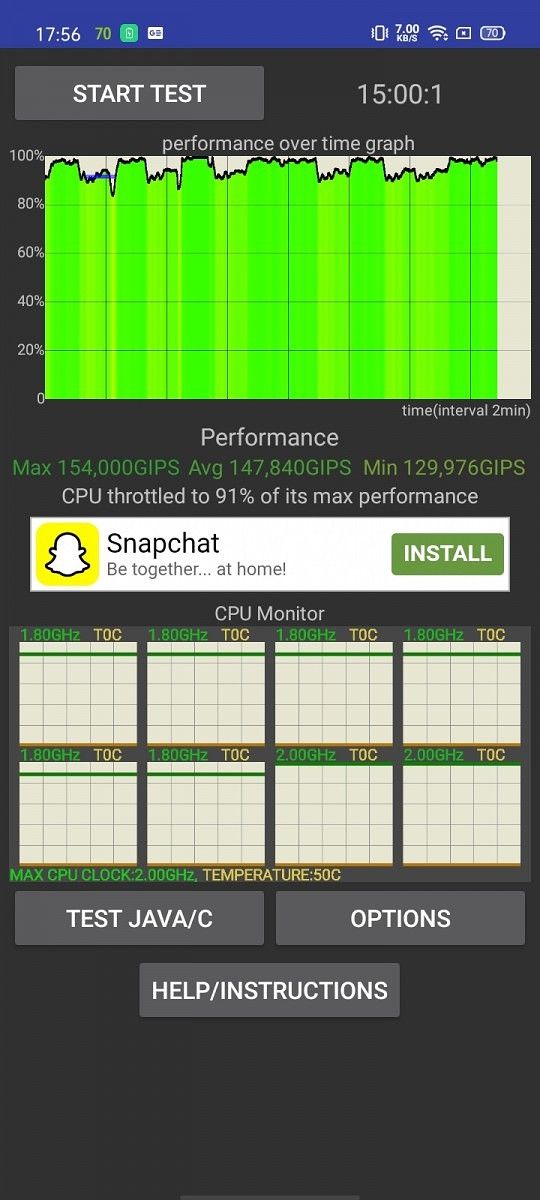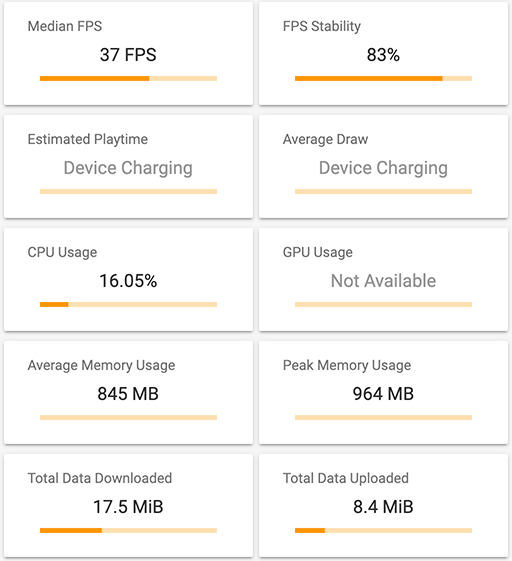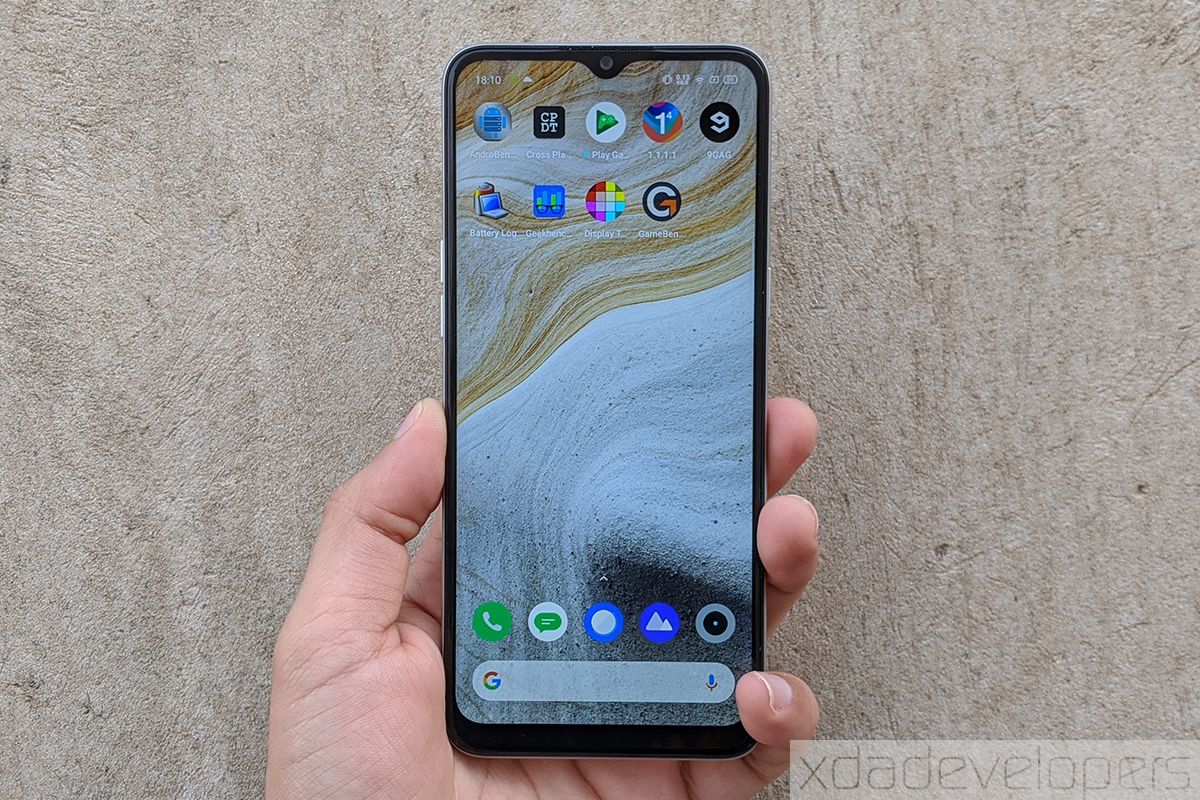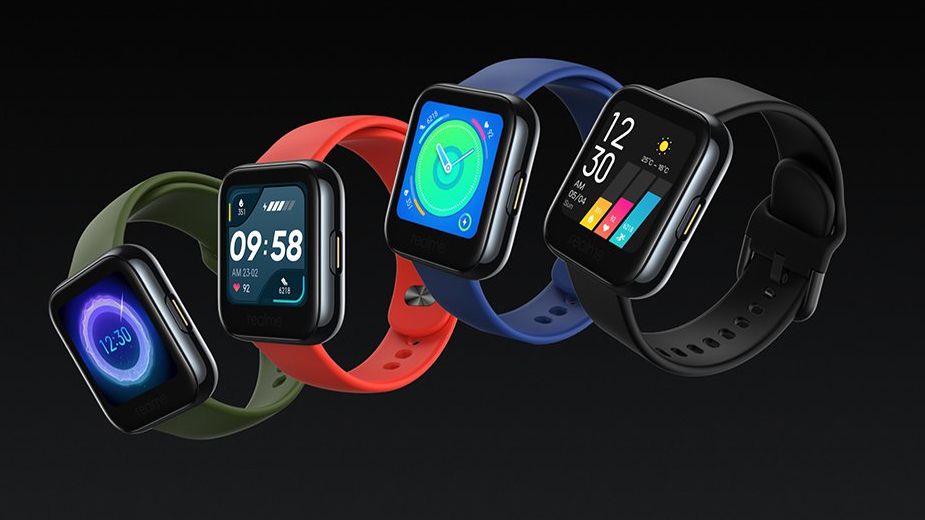Realme as an independent brand has been in the market for only a little over two years now, but its growth has been steeper than any other popular smartphone brand we know. Realme started as a budget-oriented brand and stuck to this notion for its first year. Although it has ventured way out of this territory with the launch of several pro-grade flagship killers and powerful mid-range smartphones, Realme hasn’t abandoned the budget segment. Realme announced the Narzo series in India earlier this month to target younger users who demand a good mix of performance, camera quality, and aesthetics from their phone but also operate within a rigid budget. The first two smartphones in the Realme Narzo series are the Realme Narzo 10 and the Realme Narzo 10A, both of which are powered by MediaTek’s G Series chipsets.

Buy Realme Narzo 10 in India on Flipkart (₹11,999)
Here’s a quick rundown of the specifications of the Realme Narzo 10. Interestingly, the Realme Narzo 10 is a rebranded version of the Realme 6i which was first launched in Myanmar and then in Europe earlier this year.
Realme Narzo 10 (Realme 6i) Specifications
Realme Narzo 10 (Realme 6i) Specifications
| Specifications |
Realme Narzo 10/Realme 6i |
|
|
| Display |
- 6.5-inch LCD
- 1600 x 720 pixels
- 20:9 aspect ratio
|
| SoC |
- MediaTek Helio G80
- 2 x Arm Cortex-A7 @ 2.0GHz
- 6 x Arm Cortex-A55 @ 1.8GHz
- Mali G52 MC2 GPU @ 950MHz
|
| RAM |
4GB |
| Storage |
128GB eMMC
Dedicated microSD slot |
| Battery |
5,000mAh, 18W charging via USB Type-C |
| Fingerprint Sensor |
Rear-mounted |
| Rear Camera |
- 48MP Wide, f/1.8, 6P lens
- 8MP Ultra-Wide, 119°, f/2.25
- 2MP f/2.4 Macro Camera
- 2MP f/2.4 Depth Sensor
|
| Front Camera |
|
| Android Version |
Realme UI based on Android 10 |
| Colors |
White Milk, Green Tea |
While Realme had initially planned to launch the Narzo series in India back in March, the company was forced to delay the launch due to COVID-19. Realme sprang back into action and announced the two smartphones soon after the lockdown was eased. I have been using the Realme Narzo 10 in “White Milk” for about 10 days and here are what I believe are the positives and negatives of the smartphone.
The Good
Performance & Gaming
Smartphone gaming is growing at a monumental pace and in most cases hardware limitations don’t deter enthusiasts from engaging and contributing to the trend. Dipping its toes into this stream, chipmaker MediaTek introduced its gaming-centric G series last year with the Helio G90 and the G90T mobile chipsets. Following up on those chipsets, MediaTek announced the Helio G70 and the G80 chipsets for relatively more affordable smartphones as part of the G Series. Realme has been among the earliest OEMs to adopt these chipsets and the Realme C3 (our gaming review) with the Helio G70 was already launched about three months ago. The Helio G80 is relatively newer and the Realme 6i was the first device released globally with the chipset.

Besides rebadging the Realme 6i as the Realme Narzo 10 in India, Realme also earned bragging rights for India’s first phone powered by the MediaTek Helio G80 chipset. The chipset, as I mentioned above, is aimed at providing a decent gaming experience on budget-oriented devices priced around the $200 mark; in India, the Realme Narzo 10 is priced at about ₹11,999/$160 (although the prices in Europe are higher at ₹16,562/€199.90/~$220). The MediaTek Helio G80 is a 12nm chipset with an octa-core CPU in a big.LITTLE configuration and a Mali-G52 MC2 GPU. The CPU features two ARM Cortex A75-based performance cores clocked at 2.0GHz and six Cortex A55-based efficiency cores at 1.8GHz.
In our standard run of synthetic benchmarks, we get mixed results in comparison with other devices such as the Redmi Note 7 Pro and the Realme 5 Pro. We are also keeping the Helio G70-powered Realme C3 in the competition to see how the two chipsets differ in terms of performance.
Geekbench 5

Starting with GeekBench 5, MediaTek’s Helio G80 chipset on the Realme Narzo 10 outperforms the Helio G70 on the Realme C3 but lags behind the Redmi Note 7 Pro and the Realme 5 Pro running on the Qualcomm Snapdragon 675 and the Snapdragon 712 mobile platforms, respectively. MediaTek’s G-series chips are fabricated on a 12nm foundry process as opposed to the Snapdragon 675 and 712 that are fabricated on 11nm and 10nm processes respectively, ensuring better performance despite a CPU design similar to the Helio G80.
Geekbench 5 (Free, Google Play) →
CPU Throttling Test
Smartphone CPUs, especially in the lower-range and budget segments, are not intended for intensive tasks as they quickly throttle in performance in response to internal heating. The same is expected for the Helio G80 chipset, so to check for the extent of throttling on the CPU, I used the CPU Throttling Test app. Realme UI lets you choose between a “High Performance” mode, which offers high performance regardless of battery consumption, and a “Smart Performance” mode, which is the default option and may limit the performance for optimal battery life. The following tests were run for 15 minutes in both modes to compare the performance and CPU throttling in both cases.


As you can see, the Realme Narzo 10 is throttled to around 90% peak CPU performance in both cases. Intriguingly, the High Performance mode not only has a higher threshold for throttling but also increases the performance output by about 14% (on the basis of the average floating points).
CPU Throttling Test (Free, Google Play) →
PCMark Work 2.0

In PCMark’s Work 2.0 tests, the Realme Narzo 10 surpasses its competitors with impressive results in each of the tests. This may indicate the smartphone’s tendency to serve you better in day-to-day tasks like photo or video editing, web browsing, note-taking, etc.
PCMark for Android Benchmark (Free, Google Play) →
3DMark Sling Shot Extreme

Moving on to the graphics-intensive 3DMark Sling Shot Extreme benchmark, the Realme Narzo 10 performs better than the Realme C3 as well as the Redmi Note 7 Pro in the case of both the OpenGL ES 3.1 and Vulkan API versions of the test. The Realme Narzo 10, however, lags behind the Realme 5 Pro in both scenarios by a significant margin.
3DMark - The Gamer's Benchmark (Free, Google Play) →
AndroBench Storage Benchmark

In terms of the transfer speeds of the eMMC storage on the Realme Narzo 10, the results are comparable to the other devices with eMMC storage. The Realme 5 Pro with a UFS 2.1 storage has a noticeable advantage in the sequential read speed. Interestingly, the Realme Narzo 10 has better sequential and random write speeds than all the other devices.
Androbench (Storage Benchmark) (Free, Google Play) →
Realme Narzo 10 (Realme 6i) Gaming Experience
While the benchmarks paint a good picture of the Realme Narzo 10’s theoretical performance, synthetic tests cannot fully mimic real-life performance. To test the latter, I played PUBG Mobile extensively on the phone and was surprised by how well it holds up. First of all, I was surprised to see that the phone supports Ultra frame rate settings (40fps), instantly setting high expectations.
To test how well it can live up to these expectations, I played PUBG Mobile at predominantly two graphics settings – Balanced graphics at Ultra frame rate and Smooth graphics at Ultra frame rate – and tested the performance with GameBench. To compare the performance in both scenarios, I dropped at the same spot on the Miramar map and moved inwards into the play zone. In both scenarios, the Realme Narzo 10 rendered the game at a median frame rate of over 35fps. In both cases, there were fluctuations in the frame rate when you’re picking inventory items, taking damage from being shot at, or there’s a sudden change in landscape. After about 10 minutes of gameplay, the phone does heat up noticeably and the frame rate tended to fluctuate more. While that may be concerning for pro gamers, the performance is really good considering the price of the smartphone.




Realme Narzo 10 gaming performance in PUBG Mobile measured with Gamebench in Smooth graphics (left) and Balanced graphics (right)
The frame rate variability index was slightly higher for the session on Balanced graphics, indicating that the number of frames dropped (on average) was higher in the case of Balanced graphics as compared to Smooth.
GameBench Community Edition (FPS without root) (Free, Google Play) →
GameBench Pro [Account Required] (Free, Google Play) →
Thanks to GameBench for providing us a journalist license. GameBench is a suite of tools for developers to analyze the fluidity, power consumption, and memory usage of games. GameBench is available as an app on Google Play Store (unlisted) and as a desktop application. For more information, visit GameBench.net.
48MP camera on a budget
The Realme Narzo 10 is furnished with a 48MP quad-camera setup, which is identical to what we saw on the Realme 5s. There’s a 48MP primary camera with 4-in-1 pixel binning so you get 12MP images by default, though there is also a dedicated mode for 48MP photography. In addition to the primary sensor, there’s an 8MP wide-angle camera, a 2MP fixed-focus macro camera, and a 2MP depth sensor.

Just like all of the Realme devices we’ve reviewed previously, the images captured on the Realme Narzo 10/Realme 6i have punchy colors and an appreciable amount of details. While I wasn’t able to step out and test the Realme Narzo 10’s camera, Adam Conway – XDA’s Senior Writer and Video Producer from Ireland – shared some of the camera samples he took with his Realme 6i unit, and the results are pretty satisfying for a phone at this price.
The only issue I have with these images is that the saturation makes them look unrealistic in certain cases. The images with greenery have a warm overtone to them, and I wish Realme could dial that down a bit. For most users who’ll be posting photos to Instagram or other social media platforms, there should not be issues with this overload of colors.
Take a look at some of the camera samples Adam took with the Realme 6i.
Standard 12MP mode





12MP vs 48MP




Standard vs Ultra-wide-angle




Big battery and USB-C
The Realme Narzo 10 is equipped with a large 5,000mAh battery which easily endures through an entire day of demanding usage. The HD+ resolution also translates to saving some of the battery’s juice, which means you can keep binge-watching throughout the whole day. The phone’s large battery and HD+ display also provide for long gaming sessions. The phone’s battery got a five-star rating in our Gamebench-based gaming performance test above. As per the test, the phone can last about 12 hours with the highest supported graphics settings and nearly 100% brightness.

In addition to the big battery, the Realme Narzo 10 also comes with an 18W fast charger in the box that uses the phone’s USB Type-C port to replenish the battery fully in about 2.5 hours.
Now that we’ve gone over the features that make the Realme Narzo 10 a great option for its price, here are a few issues that may result in an unpleasant experience with the smartphone.
The Bad
Recycled design
While Realme tends to be innovative with the finish of the back panels, the overall design layout is pretty much overutilized – and even without considering the Realme Narzo 10 and the Realme 6i as different devices. Realme has been using this design since August 2019 when it launched the Realme 5. The design has been rehashed with the Realme 5i and the Realme 5s which bring minor changes to the specifications of the Realme 5.


Although I like the Realme Narzo 10’s new satin-y white finishes – quite evidently created on the same lines as the Realme X Master Edition – the only other external change as compared to the Realme 5, 5i, and 5s is the new USB Type-C port. Internally too, the only considerable change we see is the new chipset while the Realme Narzo 10 carries over the same aura as the older devices.
No 60fps video recording

The Realme Narzo 10’s 48MP camera is an exciting feature for the price but the phone lacks majorly when it comes to video recording, and that’s due to the limitations of the chipset. The MediaTek Helio G80 supports a maximum of 1080p video recording at 30fps, even though there is an option to select the 60fps mode in the camera app. Just to clarify, Realme does not endorse the 60fps video recording but to me, it feels like the missed opportunity of adding a useful video feature especially as the world is moving towards making more videos than any other form of content.
No 5GHz Wi-Fi
The last of my gripes with the Realme Narzo 10 is rather trivial and may not concern every buyer at this price point, and that is its limitations in terms of Wi-Fi. The smartphone is limited to the 2.4GHz Wi-Fi band and does not support the 5GHz band. As per Realme, users buying this or any other smartphone in this price range are not likely to use 5GHz Wi-Fi, especially in India.
While I do agree with the possibility, Realme’s justification ignores the fact that many institutions, workplaces, or co-working spaces use dual-band Wi-Fi routers. They also ignore the fact that the Qualcomm Snapdragon 665 mobile platform powering the Realme 5/5i/5s does, in fact, support both Wi-Fi bands, making the lack of support on the Realme Narzo 10 appear like a downgrade. Considering Qualcomm is pushing the latest network protocols including Wi-Fi 6 even on the most affordable of their latest chipsets, MediaTek is in desperate need to pick up some slack and manufacturers like Realme – but more importantly consumers – have to pay the price for this.
Realme Narzo 10: Not a no-brainer
The Realme Narzo 10 is definitely a compelling smartphone for its price, especially if you’re looking for reliable performance and have a knack for gaming. But as I listed above, the device has equally considerable pros and cons that can make or break the deal for you, depending on your preferences. Before deciding whether to buy the Realme Narzo 10 or not, you should consider a few points.

If you want a gaming and performance-oriented smartphone, then the Realme Narzo 10 is a good option, but the experience might be deterred by a mediocre display. If you want a better display quality but are okay with a smaller one, the Redmi Note 7 Pro or the Redmi Note 8 are options you can consider. However, along with the smaller display, you’ll also be settling for a smaller 64GB of internal storage on the two devices as the 128GB variants of both are more expensive. The Realme Narzo 10 also features a larger 5,000mAh battery and an 18W charger within the box. But then again, you lose out on 4K or 60fps recording and dual-band Wi-Fi.
In conclusion, if an HD+ display doesn’t bother you much and you are strictly bound by a budget of around ₹12,000 (€199.90 in Europe), then the Realme Narzo 10 (Realme 6i in Europe) does become a lucrative choice. But if you can stretch the budget, you might have more compelling options available to you.
In India, you can purchase the Realme Narzo 10 (4GB RAM, 128GB storage) in That Green or That Black via Flipkart. In Europe, you can purchase the equivalent Realme 6i (also 4GB of RAM and 128GB of storage) in Green Tea or White Milk colors via Realme.com. Realme in Europe ships the Realme 6i to Belgium, France, Germany, Luxembourg, Netherlands, and Portugal, but check your regional Realme store to see if the device is also available for you.
Buy Realme Narzo 10 in India on Flipkart (₹11,999) ||| Buy Realme 6i in Europe on Realme.com (€199.90)
The post Realme Narzo 10 (Realme 6i) Review: The Good and the Bad appeared first on xda-developers.
from xda-developers https://ift.tt/2LUIgVb
via
IFTTT












































